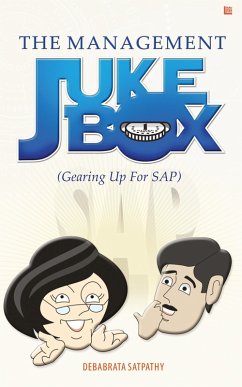
Gaucho Dialogues on Leadership and Management (eBook, ePUB)
Versandkostenfrei!
Sofort per Download lieferbar
30,95 €
inkl. MwSt.
Weitere Ausgaben:

PAYBACK Punkte
15 °P sammeln!
Saladeros were the 17th-19th-century Pampa beef industry businesses where the beef was sun-dried or "jerked." Alfredo Behrens suggests that in such lifeless routine work there was little glory to be found, at least as capable of enthusing workers to perform to their highest potential. The trouble, Behrens argues in "Gaucho Dialogues on Leadership and Management," is that most subsidiaries in developing countries are managed as modern saladeros. Latin Americans are brought up in the medieval Catholic tradition of detachment from worldly material gain. Profit is disdained, largesse and martyrdom...
Saladeros were the 17th-19th-century Pampa beef industry businesses where the beef was sun-dried or "jerked." Alfredo Behrens suggests that in such lifeless routine work there was little glory to be found, at least as capable of enthusing workers to perform to their highest potential. The trouble, Behrens argues in "Gaucho Dialogues on Leadership and Management," is that most subsidiaries in developing countries are managed as modern saladeros. Latin Americans are brought up in the medieval Catholic tradition of detachment from worldly material gain. Profit is disdained, largesse and martyrdom are praised.
Behrens illustrates the Latin American organizational how-to through a dialogue attributed to two famed nineteenth-century iconic literary characters, Martín Fierro and Don Segundo Sombra. Fierro is construed to espouse the passionate, nonpragmatic, xenophobic attitude popular among many Latin American leaders of the twentieth century. Sombra, on the other hand, espouses a more nuanced affection toward old ways, suggesting that they may be responsible for some of the economic and technological backwardness of Latin Americans. "Gaucho Dialogues on Leadership and Management" carries the reader through militia-led insurrections from Argentina and Uruguay through Brazil, Venezuela, Central America, and Mexico. Fierro and Sombra comment on the insurrections and draw lessons about leadership, strategy and people management in Latin America. While the book's argument covers the ethos prevailing in the Americas, both North and South, Behrens believes it may be relevant elsewhere among similar societies where people prefer to act as members of clans than as autonomous individuals. If so, the book's argument may be relevant for the vast majority of humankind at work.
Behrens illustrates the Latin American organizational how-to through a dialogue attributed to two famed nineteenth-century iconic literary characters, Martín Fierro and Don Segundo Sombra. Fierro is construed to espouse the passionate, nonpragmatic, xenophobic attitude popular among many Latin American leaders of the twentieth century. Sombra, on the other hand, espouses a more nuanced affection toward old ways, suggesting that they may be responsible for some of the economic and technological backwardness of Latin Americans. "Gaucho Dialogues on Leadership and Management" carries the reader through militia-led insurrections from Argentina and Uruguay through Brazil, Venezuela, Central America, and Mexico. Fierro and Sombra comment on the insurrections and draw lessons about leadership, strategy and people management in Latin America. While the book's argument covers the ethos prevailing in the Americas, both North and South, Behrens believes it may be relevant elsewhere among similar societies where people prefer to act as members of clans than as autonomous individuals. If so, the book's argument may be relevant for the vast majority of humankind at work.
Dieser Download kann aus rechtlichen Gründen nur mit Rechnungsadresse in A, D ausgeliefert werden.













